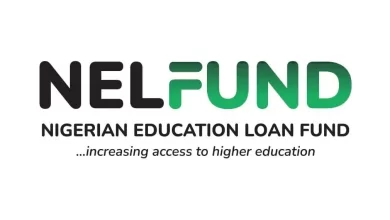The Nigerian Education Loan Fund (NELFUND) has significantly impacted the educational sector by disbursing funds to students in tertiary institutions across Nigeria. With over ₦2.5 billion already allocated, this initiative is changing the lives of thousands of students who previously struggled to afford higher education. As the next batch of disbursements is set to be released, more students are optimistic about benefiting from this government-backed financial support.
NELFUND’s efforts align with President Bola Ahmed Tinubu’s administration’s commitment to improving access to education in Nigeria. By eliminating financial barriers, the fund ensures that no student is left behind due to a lack of resources. This article explores the latest updates, eligibility criteria, and benefits of the student loan program.
The Latest on NELFUND Disbursements
As of the latest update, NELFUND has disbursed over ₦2.5 billion in student loans, covering tuition and upkeep allowances for 22,120 students across six tertiary institutions. An additional ₦442.4 million has been set aside for monthly stipends, ensuring that students receive adequate financial support for their education.
Out of the twelve targeted institutions, six have received full disbursements, totaling approximately ₦2.026 billion, benefiting over 20,000 students. The remaining six institutions are expected to receive their allocations in the coming weeks. This phased rollout demonstrates the fund’s commitment to transparency and efficiency in processing student loan applications.
How to Apply for a NELFUND Student Loan
Many students are eager to benefit from the NELFUND initiative but are unsure of the application process. Here’s a step-by-step guide on how to apply:
1. Check Your Eligibility
To qualify for a NELFUND student loan, you must:
Be a Nigerian citizen enrolled in an accredited tertiary institution.
Demonstrate financial need based on institutional verification.
Have no record of loan default with government agencies.
2. Register on the NELFUND Portal
Students must visit the official NELFUND website to create an account and submit their applications.
3. Upload Required Documents
Applicants must provide:
- Admission letter from a recognized institution
- Student identification number
- Bank Verification Number (BVN) for verification
- A valid National Identification Number (NIN)
4. Await Verification and Approval
Once submitted, NELFUND will verify the details and approve eligible candidates for disbursement.
5. Receive Disbursement
Approved students will have their tuition fees sent directly to their institutions, while upkeep allowances will be disbursed monthly into their bank accounts.
Benefits of NELFUND Student Loans
The NELFUND student loan program offers numerous advantages, making it a game-changer for higher education in Nigeria. Some key benefits include:
1. Full Tuition Coverage
Tuition fees are paid directly to institutions, reducing the financial burden on students and their families.
2. Monthly Upkeep Allowance
Students receive ₦442.4 million in total monthly allowances, helping them cover living expenses such as accommodation, food, and study materials.
3. No Guarantor Requirement
Unlike traditional loans that require collateral or a guarantor, NELFUND loans are accessible to all eligible students.
4. Flexible Repayment Plans
Students can begin repayment after securing employment, making the program sustainable and convenient.
How NELFUND Is Expanding Access Across Nigeria
One of the challenges of previous student loan schemes was the low participation rate in certain regions, particularly in the South-East. To address this, NELFUND has launched multiple sensitization programs to educate students and institutions on loan availability and the application process. As a result, more students from underserved regions are now applying for financial support.
In addition, the recent Student Loans Access to Higher Education Act, 2024, has removed previous restrictions, ensuring that income thresholds and guarantor requirements no longer hinder students from applying. This legislative change has led to a surge in applications, demonstrating a growing awareness and acceptance of the program.
Future of NELFUND and Student Loan Disbursements
The government has ambitious plans to expand NELFUND disbursements to cover more institutions and students in the coming years. With an increasing budget allocation, the program is expected to benefit over 500,000 students by 2026.
Furthermore, there are ongoing discussions about integrating tech-driven loan repayment solutions, allowing beneficiaries to make seamless payments upon gaining employment. This approach will ensure that future students continue to benefit from the program while maintaining financial sustainability.
Conclusion
The NELFUND student loan disbursement program is a significant step towards affordable higher education in Nigeria. With over ₦2.5 billion already allocated, thousands of students are now able to pursue their academic dreams without financial stress. The removal of income restrictions, coupled with a seamless application process, ensures that more students can access funds without barriers.
For prospective applicants, staying updated on NELFUND disbursement dates and application deadlines is crucial. By taking advantage of this initiative, Nigerian students can secure a brighter future and contribute to national development.
Stay Updated!
To get the latest information on NELFUND student loans, bookmark this page and follow official government announcements. Your educational journey just got easier!
